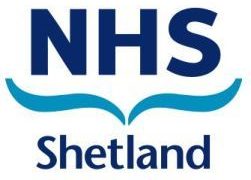Plans to make an overnight ferry journey the default option for NHS Shetland patients travelling to Aberdeen have been discarded after the health board instead agreed to accept a new deal on fares from airline Loganair.
The board unanimously agreed to accept a deal which will save around £300,000 a year from NHS Shetland’s £2.7 million travel budget. It is also hoped a further £250,000 can be saved by reducing the amount of patient journeys undertaken.
It follows a public outcry when the plans to send up to 80% of patients by ferry were first announced in March. The health board initially suggested it could save up to £1 million, but a report that went before a special board meeting on Tuesday afternoon had scaled back those savings to £600,000.
Several public petitions opposing the move had circulated in recent weeks, including one on change.org with over 1,000 signatures, and feedback from local GPs suggested that around four in 10 patients would be exempt from taking the ferry on clinical or social grounds.
NHS Shetland chief executive Ralph Roberts said the board acknowledged the “points and concerns raised” by the public.
“We feel that we should progress with the revised pricing structure from Loganair as the best way of delivering savings quickly, and it does have the benefit of maintaining patient choice,” he told board members.
Speaking after the meeting, which lasted just under half an hour, Roberts said the board was clear back in March that “we were pursuing the ferry option, but that we were going to continue progressing the discussions with Loganair. If I’m being honest that got lost a little bit in conversations”.
Roberts said NHS Shetland was looking forward to continuing to work with Loganair as it introduces new booking arrangements from September 1.
But Roberts warned that it now leaves a gap of around £700,000 in the health board’s budget that will have to be plugged.”
Patients will have the choice of travelling by either sea or air, and the board has also agreed to work with clinical staff to “agree clearer criteria for patients who receive a medical escort” after recognising the criteria “could be clearer and more equitably applied”.
